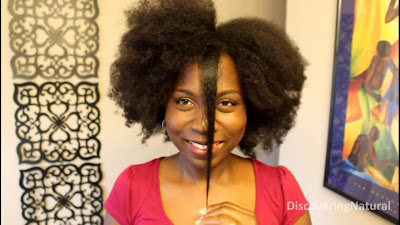Is Gel Good for Natural Hair?
Gel can be suitable for natural hair, but whether it's "good" for your hair depends on how you use it and your specific hair needs. Here are some things to consider when using gel on natural hair:
1. Define Curls: Gel is often used to define and hold curls in place, making it a popular choice for wash and go styles.
2. Frizz Control: Gel can help control frizz and create a sleek, polished look.
3. Hold and Longevity: It provides strong hold, which can keep your hairstyle in place for an extended period.
However, there are some potential downsides to using gel on natural hair:
1. Drying: Some gels contain alcohol or other ingredients that can be drying to the hair. Look for gels that are alcohol-free or specifically designed for natural hair.
2. Buildup: Overuse of gel can lead to product buildup on the hair and scalp, which may require frequent cleansing.
3. Stiffness: Gel can make the hair feel stiff and crunchy if not applied correctly or in excess.
4. Ingredients: It's essential to check the ingredients in the gel you choose. Natural hair often benefits from products free of harsh chemicals and sulfates.
To use gel on natural hair effectively:
- Apply it to damp hair, ideally right after washing or conditioning.
- Use a small amount and distribute it evenly through your hair.
- Consider layering with a leave-in conditioner or a moisturizing cream to minimize any potential drying effects.
- Avoid excessive use, as a little gel can go a long way.
- Scrunch or twist your hair to encourage curls while the gel is setting.
Ultimately, whether gel is "good" for your natural hair depends on your hair's unique needs, preferences, and the specific product you choose. Experiment with different gels and application techniques to find what works best for you while keeping your hair's health and moisture balance in mind.




Comments
Post a Comment